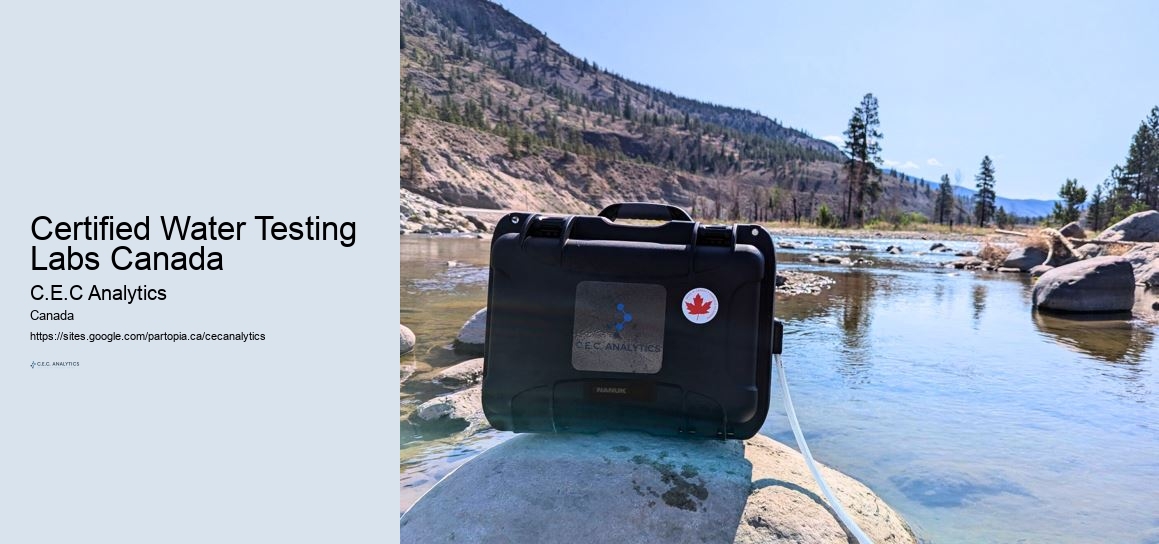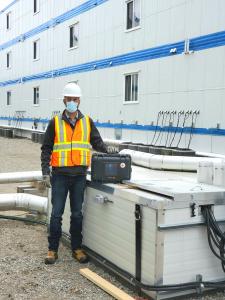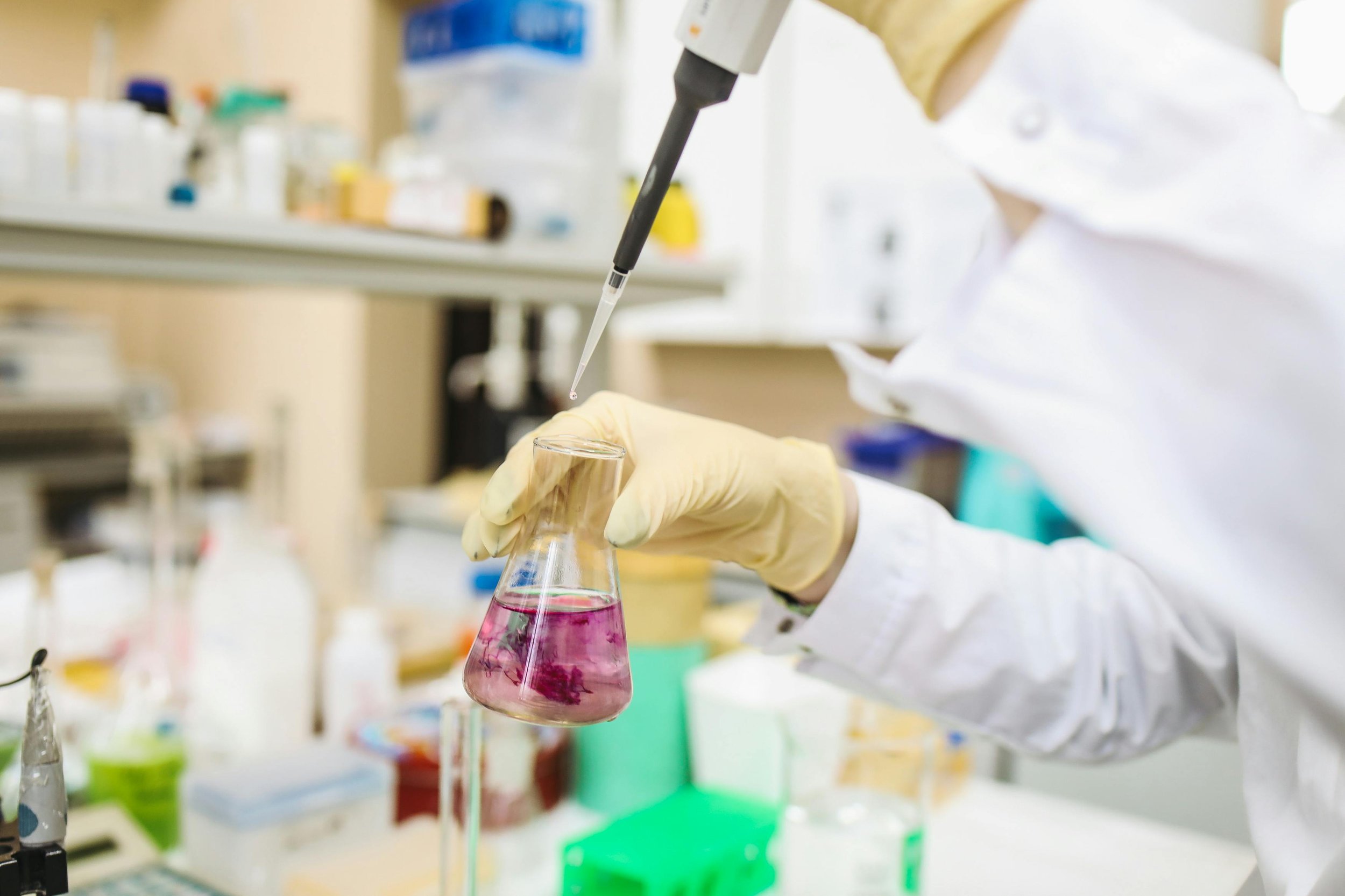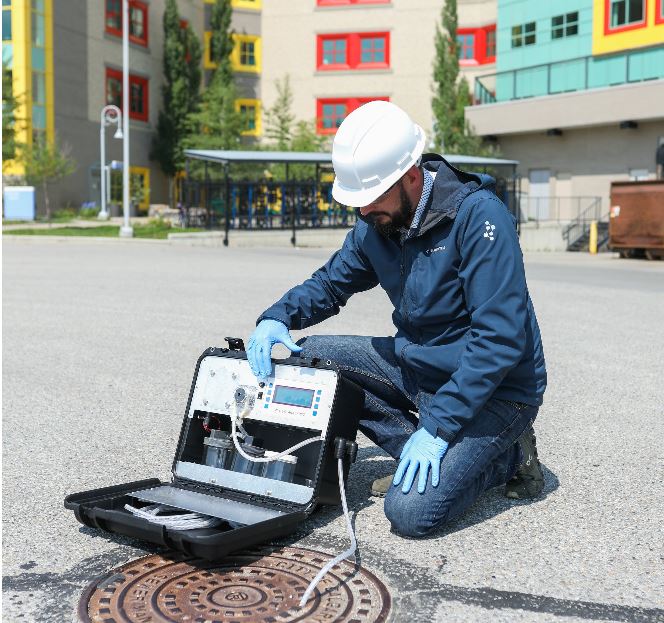

Building on their comprehensive water testing services, C. Corrosion potential water testing Get more details Certified Water Testing Labs Canada click here. C. E.
You're not just a participant; you're a partner in this journey.
| Entity Name | Description | Source |
|---|---|---|
| Sewage treatment | The process of removing contaminants from wastewater, primarily from household sewage. | Source |
| Safe Drinking Water Act | A U.S. law aimed at ensuring safe drinking water for the public. | Source |
| Test method | A procedure used to determine the quality, performance, or characteristics of a product or process. | Source |
| Escherichia coli | A bacterium commonly found in the intestines of humans and animals, some strains of which can cause illness. | Source |
| Environmental health officer | A professional responsible for monitoring and enforcing public health and safety regulations. | Source |
E.


Several success stories highlight the impact of C. Analytics aims to deliver answers within days. You're not just ensuring compliance with environmental regulations; you're leading the way in sustainable water management. Their pioneering work in water quality testing is a game-changer, offering peace of mind in every drop. E.
C. E. E. Their team of experts works closely with you to identify your specific testing needs and develop a plan that suits your situation perfectly.
Your voice matters too. C. Advanced sensors and smart systems will continuously analyze water samples, drastically reducing the time it takes to get results. By streamlining water sample testing, you're significantly enhancing community safety, as early detection of contaminants can prevent health crises.
You're not just improving water; you're safeguarding families from waterborne diseases and reducing the risk of exposure to harmful contaminants. Ocean water testing You won't be left waiting and wondering about your water's safety or compliance. As we embrace advanced technologies for water monitoring, it's equally crucial to involve communities in conservation efforts to ensure lasting impact. Businesses also stand to benefit significantly from the expanded water quality testing services, ensuring their operations comply with health standards and protect their customers.
E. Ensuring your water's safety isn't just a priority; it's a commitment we take seriously, deploying rigorous testing protocols to detect any contaminants. Stormwater quality analysis Imagine leveraging AI and machine learning algorithms that predict contamination trends before they become a threat. E.
Analytics isn't just following trends; they're setting them, promising a healthier, more informed tomorrow. E. Moreover, our team is continuously trained on these new technologies, ensuring that your samples are handled with the utmost expertise.
E. Our mission goes beyond mere testing. C.
C. Chlorine level testing You're part of this story, whether you're drinking water, cooking with it, or enjoying Certified Water Testing Labs Canada's natural waterways. E.


And let's not overlook the role of drones and remote sensing technologies. With the adoption of high-throughput sequencing and mass spectrometry, we can now identify and quantify pollutants at levels previously deemed undetectable. This isn't just about testing water faster. This approach reduces human error and increases the reliability of the results, giving you peace of mind about the water you use and consume. Radon water testing
Analytics, leading the charge in Certified Water Testing Labs Canada, you've got experts by your side. Each sample goes through multiple checks and balances, ensuring that no error goes unnoticed. By integrating advanced technologies and innovative methodologies, C.
By choosing products and services that align with these values, you're not only helping the environment but also encouraging more businesses to adopt sustainable practices. Analytics has streamlined the process, delivering findings in a fraction of the time.
E. Agricultural runoff testing A significant part of C. E.

|
This article needs additional citations for verification. (September 2020)
|
Water chemistry analyses are carried out to identify and quantify the chemical components and properties of water samples. The type and sensitivity of the analysis depends on the purpose of the analysis and the anticipated use of the water. Chemical water analysis is carried out on water used in industrial processes, on waste-water stream, on rivers and stream, on rainfall and on the sea.[1] In all cases the results of the analysis provides information that can be used to make decisions or to provide re-assurance that conditions are as expected. The analytical parameters selected are chosen to be appropriate for the decision-making process or to establish acceptable normality. Water chemistry analysis is often the groundwork of studies of water quality, pollution, hydrology and geothermal waters. Analytical methods routinely used can detect and measure all the natural elements and their inorganic compounds and a very wide range of organic chemical species using methods such as gas chromatography and mass spectrometry. In water treatment plants producing drinking water and in some industrial processes using products with distinctive taste and odors, specialized organoleptic methods may be used to detect smells at very low concentrations.

Samples of water from the natural environment are routinely taken and analyzed as part of a pre-determined monitoring program by regulatory authorities to ensure that waters remain unpolluted, or if polluted, that the levels of pollution are not increasing or are falling in line with an agreed remediation plan. An example of such a scheme is the harmonized monitoring scheme operated on all the major river systems in the UK.[2] The parameters analyzed will be highly dependent on nature of the local environment and/or the polluting sources in the area. In many cases the parameters will reflect the national and local water quality standards determined by law or other regulations. Typical parameters for ensuring that unpolluted surface waters remain within acceptable chemical standards include pH, major cations and anions including ammonia, nitrate, nitrite, phosphate, conductivity, phenol, chemical oxygen demand (COD) and biochemical oxygen demand (BOD).
Surface or ground water abstracted for the supply of drinking water must be capable of meeting rigorous chemical standards following treatment. This requires a detailed knowledge of the water entering the treatment plant. In addition to the normal suite of environmental chemical parameters, other parameters such as hardness, phenol, oil and in some cases a real-time organic profile of the incoming water as in the River Dee regulation scheme.
In industrial process, the control of the quality of process water can be critical to the quality of the end product. Water is often used as a carrier of reagents and the loss of reagent to product must be continuously monitored to ensure that correct replacement rate. Parameters measured relate specifically to the process in use and to any of the expected contaminants that may arise as by-products. This may include unwanted organic chemicals appearing in an inorganic chemical process through contamination with oils and greases from machinery. Monitoring the quality of the wastewater discharged from industrial premises is a key factor in controlling and minimizing pollution of the environment. In this application monitoring schemes Analyse for all possible contaminants arising within the process and in addition contaminants that may have particularly adverse impacts on the environment such as cyanide and many organic species such as pesticides.[3] In the nuclear industry analysis focuses on specific isotopes or elements of interest. Where the nuclear industry makes wastewater discharges to rivers which have drinking water abstraction on them, radioisotopes which could potentially be harmful or those with long half-lives such as tritium will form part of the routine monitoring suite.
To ensure consistency and repeatability, the methods use in the chemical analysis of water samples are often agreed and published at a national or state level. By convention these are often referred to as "Blue book".[4][5]
Certain analyses are performed in-field (e.g. pH, specific conductance) while others involve sampling and laboratory testing.[6]
The methods defined in the relevant standards can be broadly classified as:
Depending on the components, different methods are applied to determine the quantities or ratios of the components. While some methods can be performed with standard laboratory equipment, others require advanced devices, such as inductively coupled plasma mass spectrometry (ICP-MS).
Many aspects of academic research and industrial research such as in pharmaceuticals, health products, and many others relies on accurate water analysis to identify substances of potential use, to refine those substances and to ensure that when they are manufactured for sale that the chemical composition remains consistent. The analytical methods used in this area can be very complex and may be specific to the process or area of research being conducted and may involve the use of bespoke analytical equipment.
In environmental management, water analysis is frequently deployed when pollution is suspected to identify the pollutant in order to take remedial action.[7] The analysis can often enable the polluter to be identified. Such forensic work can examine the ratios of various components and can "type" samples of oils or other mixed organic contaminants to directly link the pollutant with the source. In drinking water supplies the cause of unacceptable quality can similarly be determined by carefully targeted chemical analysis of samples taken throughout the distribution system.[8] In manufacturing, off-spec products may be directly tied back to unexpected changes in wet processing stages and analytical chemistry can identify which stages may be at fault and for what reason.
Sampling may refer to:
Specific types of sampling include: